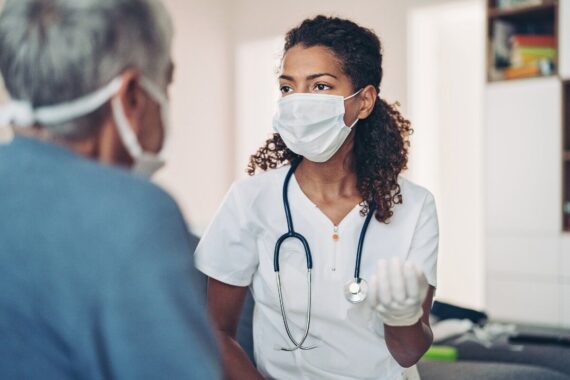The number of fully-qualified GPs has fallen by 7% to 27,375 since 2016, according to new data analysis.
At the same time, the number of registered patients at GP practices increased by 7% to 62 million in the same period of time, a rise of over 4 million.
It means that across England there are now 2,273 patients per fully qualified GP, up from 1,981 in 2016.
This is according to House of Commons Library research commissioned by the Liberal Democrats and released yesterday.
The research also pointed out that Tory health ministers’ own constituencies have GP shortages.
In health secretary Steve Barclay’s Peterborough and Cambridgeshire constituency, there are 2,336 registered patients per qualified GP, up 20% compared to six years ago.
And in health minister Maria Caulfield’s Lewes seat, the number of registered patients per GP shot up by 21% to 2,404 compared to six years ago.
Daisy Cooper MP, Liberal Democrat health and social care spokesperson, said: ‘Communities across the country are seeing ever falling numbers of GPs treating ever growing numbers of patients, in a stark postcode lottery.
‘It is creating a perfect storm that means for many people, it feels almost impossible to see your GP when you need to.
‘This ever-worsening GP shortage is having a terrible human cost, as people face delayed or missed diagnoses and A&Es fill up with desperate patients looking for treatment.
‘People are fed up with this government failing to deliver on the basics as local health services are driven into the ground.’
In response to the data, RCGP chair Professor Kamila Hawthorne called on the Government to implement a new recruitment and retention strategy.
She said this needed to go beyond the target of 6,000 GPs pledged in its election manifesto, including initiatives to attract GPs to work in under doctored areas.
Professor Hawthorne said: ‘GPs want to deliver safe, appropriate and timely care for our patients, and it’s as frustrating for us as them when they find it difficult to access our services. This research highlights why: we are delivering care and services to more people, and increasingly complex care to many of them, with fewer resources and fewer GPs.’
Last year some 340m patient consultations were made in general practice, 9% more – and 17% more delivered on the same day they were booked – than in 2019. Meanwhile, the number of fully-qualified GPs fell by 754, Professor Hawthorne pointed out.
‘This isn’t sustainable. It is leading to many GPs burning out and leaving the profession earlier than planned, and we don’t have enough GPs entering the profession at a fast enough rate to replace them – and it’s clear that some of our most vulnerable patients are feeling the impact of this most starkly,’ she said.
This week a town in Cornwall released a song and music video, featuring a flash mob, in a bid to draw attention to a GP vacancy.
Pulse July survey
Take our July 2025 survey to potentially win £1.000 worth of tokens













This is obviously what NHSE hoped for, otherwise it would have increased the core funding needed to pay GP salaries.
Your comment Andrew, implies NHSE have a plan. They don’t. They really don’t.
Equivalent loss of GPs for a population of 4500000
Then the uk population has increased by 2000000 since 2016 so equivalent loss of GP s for 6500000 patients
Something surely has to change !!?